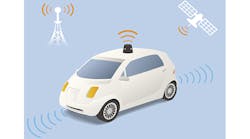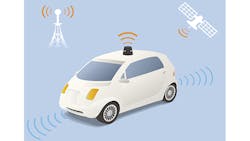The more I think about it, the more I realize that the driverless car is not a good idea. Granted, most people I talk with about this are as fascinated by the technology as I am. But once they consider the implications of a driverless car, the less they like the idea.
No doubt the technology is amazing—what with all the lasers, radar, video cameras, and sensors, as well as the sophisticated AI algorithms, mapping software, and inter-vehicle communications. I’m all for that…on cars for drivers. Even with all that fancy technology, can driverless cars really replace an experienced driver? I don’t think so.
As engineers discover the capabilities of new technologies, they quickly think up lots of things to do with it. Engineers regularly create new products and systems that are clever, but not really practical, necessary, or marketable. That approach brings us amazing new products that sometimes turn out to be highly prized. The tablet is one of those products.
But it also brings us some losers. Google Glass comes to mind, and the smartwatch may end up in that category. Just because you can so something technologically doesn’t mean that you should. A driverless car falls into this category, in my opinion. And I bet if one did a massive public survey, the majority would probably agree.
Admittedly, Google has done a good job of developing its driverless cars. And most of the auto manufacturers already have similar development programs under way. Even Apple is said to be doing development in this area. (An Apple car? Really?) No one wants to get left behind in case a large market develops, but it is not a sure thing.
Recently released statistics show the Google car to be very safe. The record shows only 13 accidents in the past 6 years in nearly 1.7 million driving miles mostly in the Silicon Valley area. And most of these accidents were faults of the other vehicle driver. No injuries or deaths, of course. No doubt Google’s algorithms and systems are super-conservative to ensure good results and publicity.
What we are hearing is all the good news about the basic driving progress these cars are making. What we don’t hear is what these cars cannot do. Let me give you my worry list about this:
- Can driverless cars operate as safely at night as they do during the day?
- Can driverless cars handle rain, fog, and snow?
- Once a driverless car gets you to your destination, can it find a parking place in a parking garage or on the street? Can it navigate your garage?
- What if you want to go for a casual Sunday drive with no particular destination? Does the car have a “browser” that lets it just wander in a highlighted area, or what? Or will that even be allowed?
- Will drivers get frustrated in navigating around slower, more-cautious driverless cars?
- Can a driverless car ever make a left-hand turn across traffic, make a right turn on red, or merge into heavy traffic? In many cases, some risk is necessary to make any progress.
- Can a driverless car find a toll lane, navigate road construction, or find a detour?
- Can a driverless car operate in New York City traffic?
- Will the driverless car really improve a person’s productivity if relieved of driving duties, as proponents claim?
- Will there be an increase in the incidence of motion sickness in non-drivers, as some expect?
- Whose insurance company pays in case of an accident?
- Will driverless cars really reduce deaths and injuries? Supporters say yes, but this has not been proven.
- Will driverless technology come to 18-wheelers? Scary thought.
- Will driverless cars really be affordable, or just too expensive like electrics?
- Why not just apply all the good technology to regular cars or make a driverless mode an option?
- Does Google have answers to all of these questions?
What concerns do you have? Anyway, think about all that before you make up your mind.
Most people like to drive (or at least, don’t mind it). It is fun to drive a winding mountain road in the fall with the top down on your sporty car. I doubt the average person will give up driving for many different reasons. It gives you freedom to come and go. Furthermore, your vehicles are a reflection of your position and personality: You often are judged or profiled by the car you drive. What does having a driverless car say about you?
My guess is that we will get driverless cars whether we actually want or need them. However, they will be expensive and not that popular. They no doubt will be received just as all electric vehicles were. A small niche market will develop and it will not be profitable, even with the inevitable government subsidy.
In any event, look for some driverless cars in your future. I urge you to enjoy and appreciate your car and driving freedom now while you still can.

